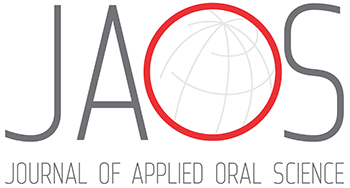This study evaluated dental caries according to the presence of natural teeth and sociodemographic conditions of an elderly population in the state of São Paulo, Brazil. Examinations were performed according to the World Health Organization's guidelines. The sample of 1,192 elderly individuals aged 65 to 74 years was stratified according to the presence of teeth and the following variables: gender, race, age, city size and Human Development Index (HDI). The Mann Whitney and Kruskal Wallis tests were applied at a confidence level of 95% for analysis of results. In the total sample, 68.9% (n=822) were edentulous; the mean of present teeth was 3.5 and the DMFT was 30.2, being 28.5 of missing teeth. Among dentate individuals (n=370), the mean of present teeth was 11.3, the DMFT was 26.2 and the missing component accounted for 20.7 teeth. The differences observed in the evaluated conditions should be highlighted: the mean number of present teeth was higher among younger individuals (from 65 to 69 years) [12.1] and among those living in cities with high HDI [12.9]; the DMFT was lower among men [24.9] and non-Caucasians [25.1]. Based on these findings, it may be concluded that specific dental programs should be established, with emphasis on oral health promotion and dental caries control, as well as public health policies that may enhance the access to the services provided.
Oral health; Elderly; Dental caries; Tooth loss





